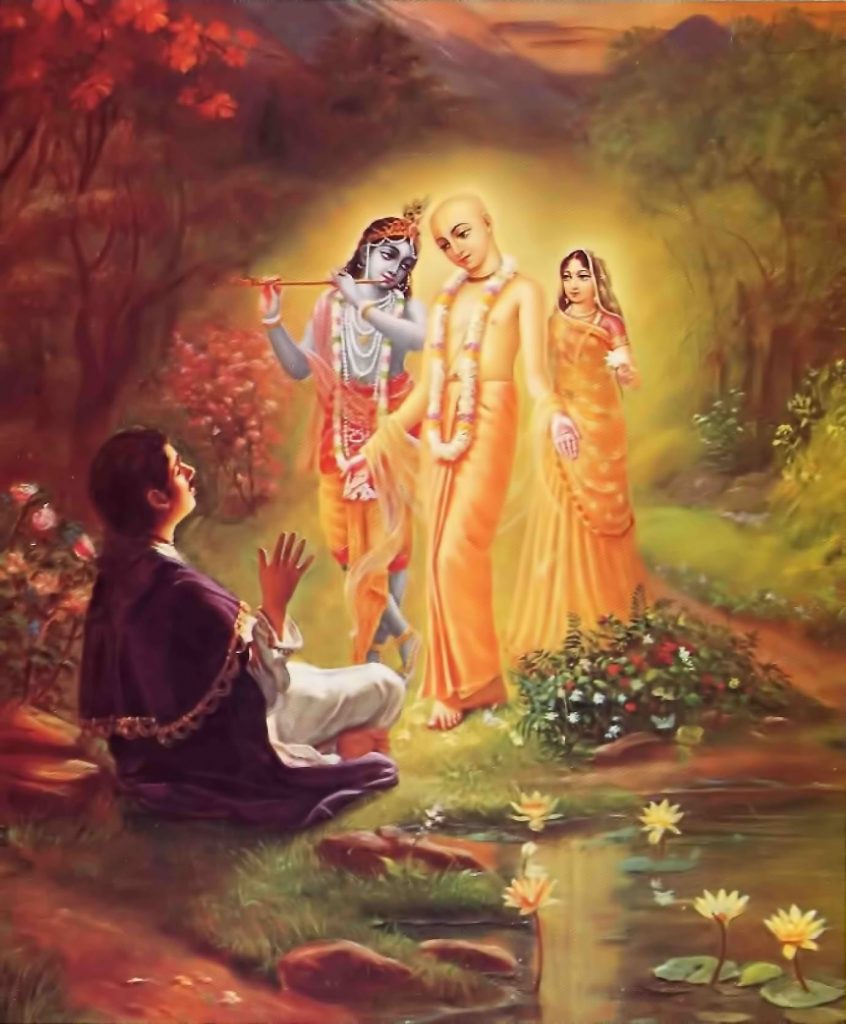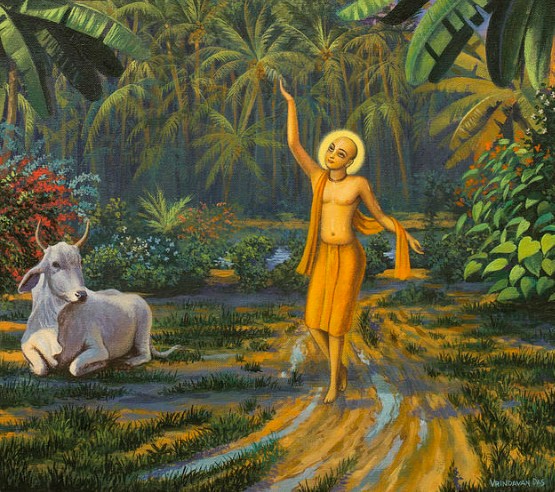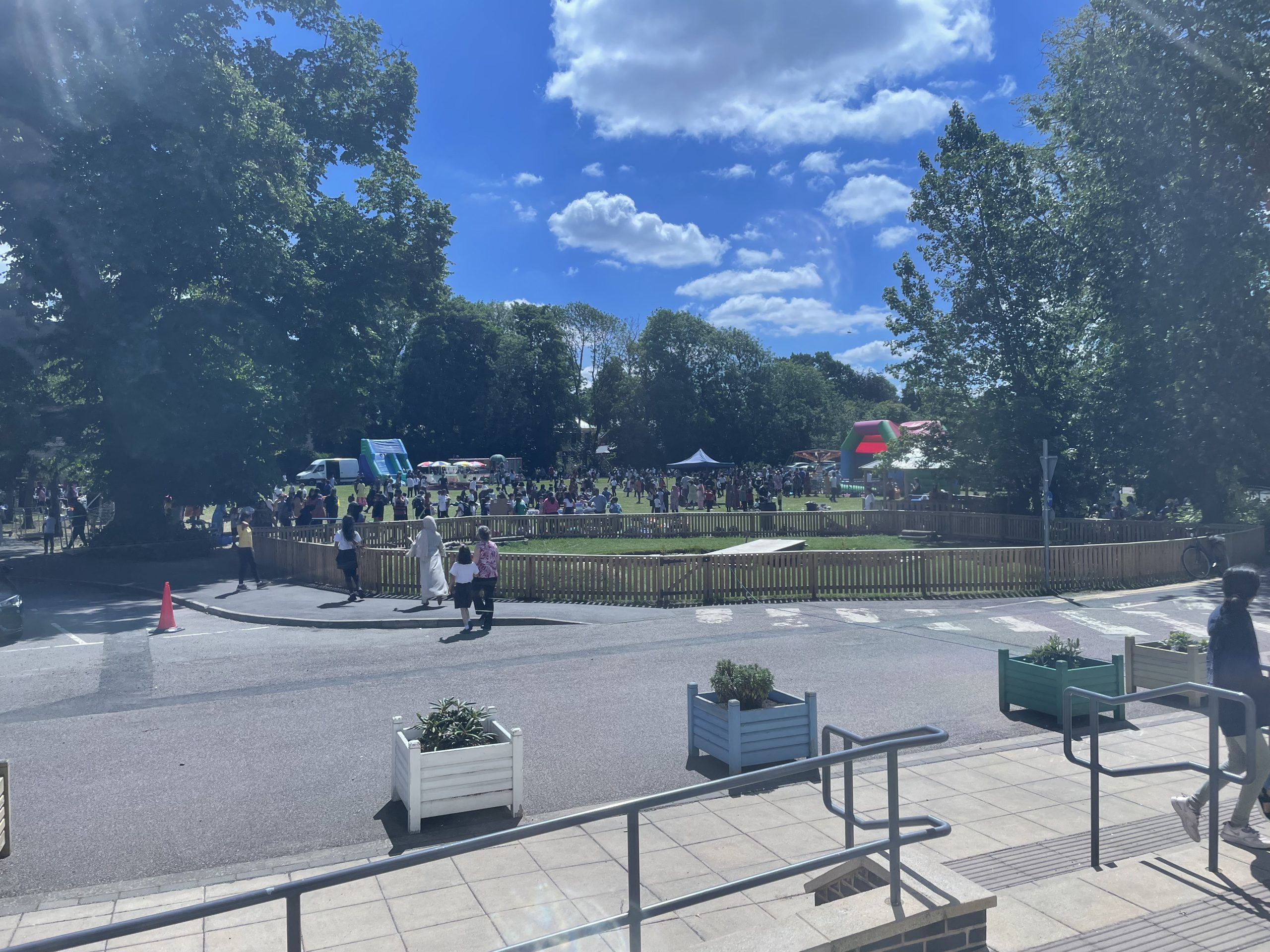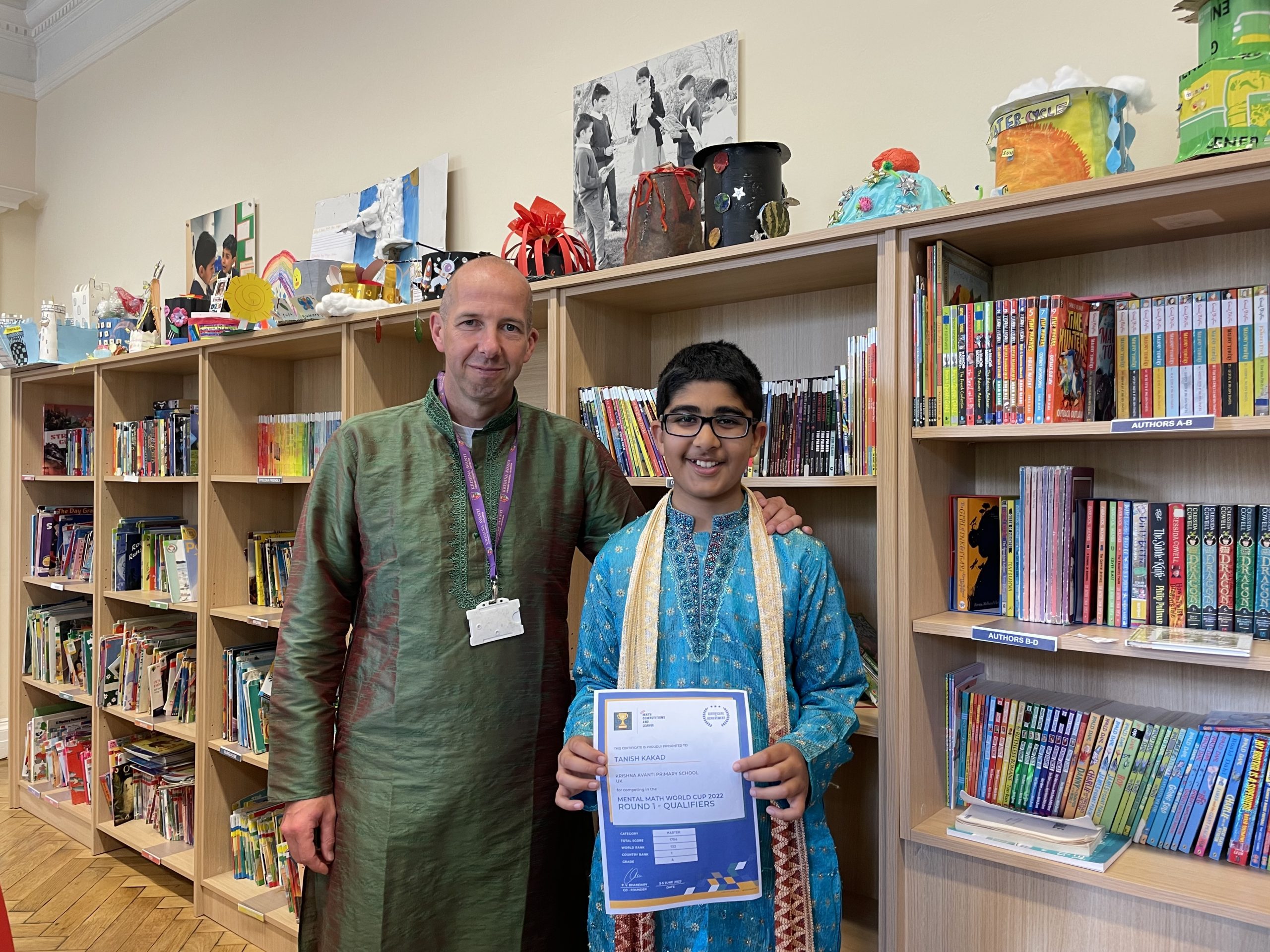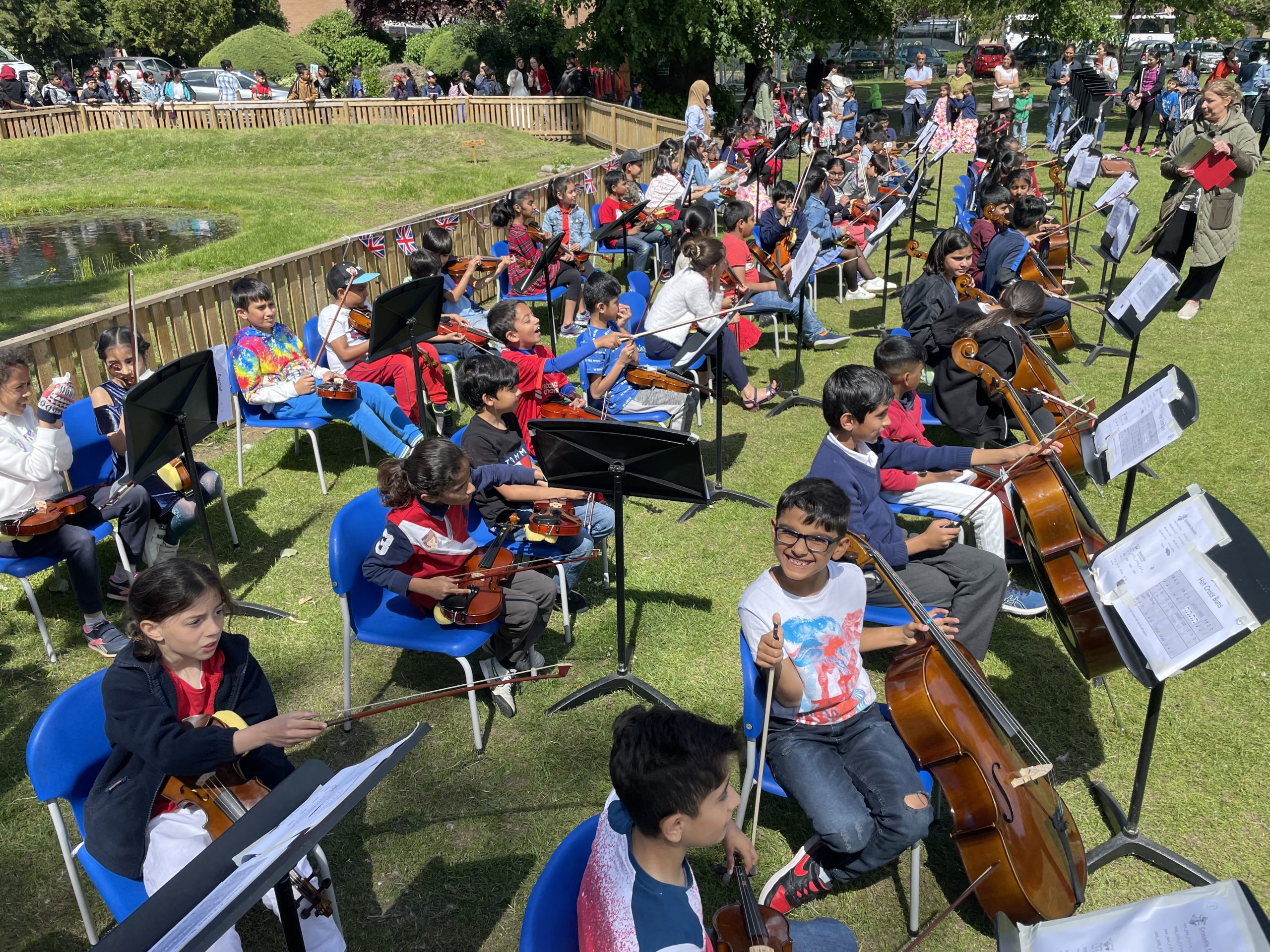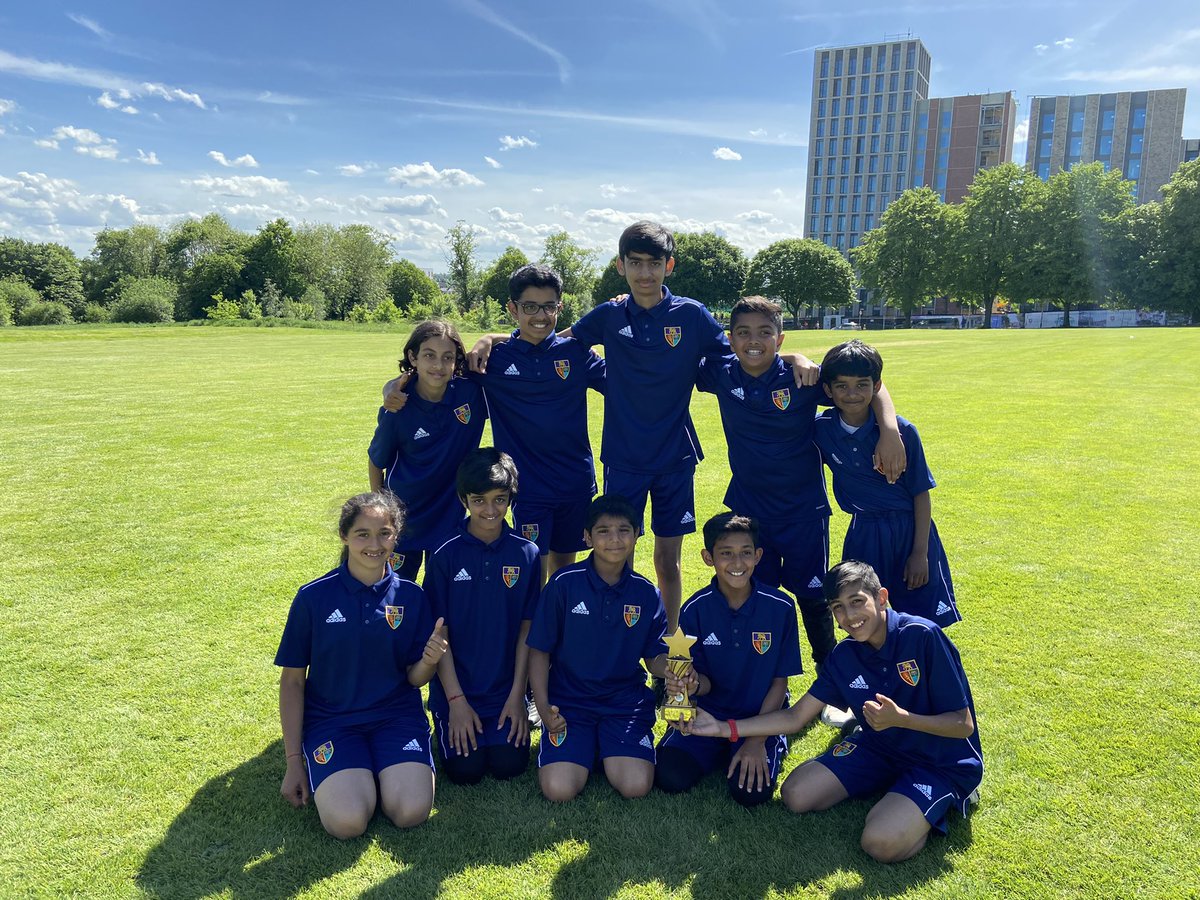Lord Chaitanya – A Christian Perspective Talk
I have been a committed Christian for all my adult life and I have also been involved in the education of children for about as long. I have taught in a wide variety of schools; Independent, Secondary, Primary and Academy (Free). I was also the Director of Education for the Diocese of Leicester until I joined the Krishna Avanti Primary School.
Relatively early in my career I recognised that faith was very important to me and that I only felt content in a school where there was space and encouragement for open discussions about God – What I call God talk. Although I have been in predominantly Christian school environments, I have always encouraged exploration and comparison of all Faiths.
It is important that as teachers and parents we show our children the awe and wonder of our world that God has created for us all.
All schools, and especially those with a faith foundation, are about allowing our children and our communities to grow and flourish academically and spiritually. Like plants, they also need to be nourished and cared for.
Of all the places that I have worked and taught in, Krishna Avanti is the place where I became most at ease with my own faith by having very deep discussions and explorations of faith with parents and children
You may ask me, Why is that? and, How did I come to know about this enigma that is Sri Chaitanya?
As I have alluded to you already, my own journey to His discovery has been unorthodox and perhaps just random coincidence, or perhaps it was something else, something much bigger.
When I started at our School I wondered how could I possibly understand the faith of Krishna Avanti? And how could I possibly lead the expression of faith in such a school; – as I believed that as Principal I should lead on that element too.
A daunting prospect? In fact NO. My journey of discovery has been a truly wonderful time of learning for me.
That journey, or quest, started on the main staircase in our school. Hanging on the wall there is an enormous painting of this remarkable man. But who was this person called Sri Chaitanya?
It was not a name I had ever heard of before and other than saying who He was, no one really enlightened me as to why it was there, in such prominence in our school.
So I went to the font of all modern knowledge, but Google didn’t help at all, so I asked, I listened and discussed with others, raising loads of questions. Then I met Ranchor Prime, the author of the book “The Birth of Kirtan”, he sat in my office one afternoon discussing his “journey” as well as my own, to date.
As I began to learn more about Sri Chaitanya, I began to make comparisons alongside the life of Jesus. Whether you are a Christian or Hindu-Vaisnava, the similarities are quite amazing.
To begin with both Jesus’ and Sri Chaitanya’s births had been foretold in scripture – of God descending to earth.
They both spent just a short time dwelling amongst mankind on earth, they wrote no books but left rich legacies of teachings and prayers for us.
As Sri Chaitanya said “I give my teachings to all and live by what I teach”, This is written over the archway to the shrine at school as I really wanted the children and community to see that phrase and remember it.
These are verses left by Sri Chaitanya, I have taken them from the Birth of Kirtan, as they are easier to understand.
He said, “My friends, chanting God’s name is the best spiritual path.”
“Glory be to our chanting of Krishna’s name, which washes the dust of years from the mirror of the heart, extinguishes the blazing fire of birth and death, spreads the shining moon of good fortune, and inspires true wisdom. This chanting expands the ocean of bliss, and gives all who bathe in that ocean a taste of the sweetest nectar at every step.”
“Oh my Lord, your many names contain all your personal potencies, and there are no rules for how or when to chant them. Your mercy is so great, yet my misfortune is that I have no attraction for your names.”
“One who feels lower than the grass, who is more tolerant than a tree, who expects no personal honour, but who gives all honour to others, can easily chant the name of the Lord constantly.”
If a tree is mistreated it still gives fruit and shelter without protesting or even asking for water. As He spoke his humility grew and he prayed for the gift of service.
“O Supreme Lord! I have no desire to enjoy wealth, fame or a beautiful partner. All I want birth after birth, is to offer you pure devotional service.”
“O Krishna, I am your eternal servant, but I have fallen into this ocean of birth and death. Please be merciful and accepted me as a particle of dust at your lotus feet.”
Saying these prayers, He felt the deep desire to chant Krishna’s name in ecstatic love and continued:
“When will tears stream from my eyes, words falter in my throat, and my hairs stand on end, by chanting your name?”
“A moment seems like a thousand years, tears flow from my eyes right torrents of rain, all the world appears vacant – without you, Govinda.”
He remembered Radha’s words: “A day never ends, my eyes relive clouds in the monsoon, I am burning in a slow fire, Krishna ignores me to test my love. My friends say I should forget Him, but I cannot.”
Absorbed in Radharani’s mood he spoke from His heart:
“Let Krishna embrace me as I fall at His feet, or trample me beneath Him, or let Him even break my heart by leaving me. He is free to do anything and everything, for He will always be the unconditional Lord of my heart.”
In a similar way Jesus’ sermon on the Mount (Matthew 5:3-10) details what Christians know as The Beatitudes.
He said:
“Blessed are the poor in spirit, for theirs is the kingdom of heaven.”
“Blessed are those who mourn, for they will be comforted.”
“Blessed are the meek, for they will inherit the earth.”
“Blessed are those who hunger and thirst for righteousness, for they will be filled.”
“Blessed are the merciful, for they will be shown mercy.”
“Blessed are the pure in heart, for they will see God.”
“Blessed are the peacemakers, for they will be called children of God.”
“Blessed are those who are persecuted because of righteousness, for theirs is the kingdom of heaven.”
Jesus presents the Beatitudes in a positive sense, virtues in life which will ultimately lead to reward. Love becomes the motivation for the Christian. All of the Beatitudes promise us salvation – not in this world, but in the next. Whilst they offer a way of life that promises salvation, they also provide peace in the midst of our trials and tribulations on this earth.
Sri Chaitanya and Jesus also both had relatively small group of disciples or devotees.
As you see from what I have said so far, every new piece of information filled me with wonder, and the really big question for me now is: Why don’t we know all know about Sri Chaitanya and His disciples?
It was through reading the book “The Birth of Kirtan”, that I found Him and his close friends – the Panca Tattva – the 5 truths.
I discovered that 500 years ago Advaita Acharya saw the world as it was.
How the people had lost their way, and this brought him great despair at what he saw. Every day he sat and prayed to the Lord to come to earth and to guide people along the path back to His love. In the same way that the Jews waited for the coming of the Messiah and how John the Baptist continually told people “He will come” and “He will lead the people back to the Lord.”
Such was Advaita’s faith, he never stopped his prayers. He was humble in his devotion and continued his bequests day after day after day until the glorious day that Sri Chaitanya was born and Advaita was ecstatic, but He remained humble in his service to the Lord to the end, as he said I am a servant of Lord Chaitanya and a servant of his servants.
Through my reading, Advaita especially, has become special in my own life.
500 years ago, India was a country strongly divided by caste, creed and race. The Caste system was rigid in its application. Sri Chaitanya proclaimed that the love of God is the privilege of all souls not for those who are of a higher caste, those with wealth or station in life.
This has echoes of the story of Jesus entering the temple in Jerusalem where High Priests, Scribes and Pharisees looked down on the poor, and also when He grew angry at the way the temple was being used, cheating people out of money.
Jesus tells us of the story of the Widows Mites (Mark 12:41-44, Luke 21:1-4) An elderly widow enters the temple and makes her offering, just 2 small coins. How these people in superior positions scoffed at her pitiful offering but Jesus pointed out that she had actually given more than all the rest, because she gave all that she had. She had nothing more to give, but what had the others actually given?
So, what did Sri Chaitanya do?
Well, He ignited a spiritual revolution. He defied the superficial, oppressive and sectarian boundaries of His times by declaring that: Pure love for Krishna (God) is the privilege of all souls regardless of their caste or station in life and regardless of their faith.
He taught and explained how this love inspires compassion for all beings, He proclaimed the precious treasure of this love is within our hearts and that everyone is entitled to it.”
He taught that God has many names, each of them empowered to awaken the dormant love within our hearts. He fearlessly confronted prejudice of the oppressive caste system. He said that sincere, loving intent was all that mattered; not the material value of things.
Sri Chaitanya extended his mercy equally from kings and to stray dogs. He stated that the one qualification is to open your heart to accept His grace.
Jesus did the same. He proclaimed 2 commandments, not 10. In Matthew’s Gospel (22:37-40) Jesus says:
“Love the Lord your God with all your heart and with all your soul and with all your strength and with all your mind and to love your neighbour as yourself. Do this and you will live”.
There are so many similarities between the teachings of both men. “Pandit” means “Learned one”, Sri Chaitanya and Jesus Christ then were learned ones.
Their example is a light to any of us in this world who want to take up the serious practice of spiritual life. Jesus’ message is no different from the message preached in another time and place by Lord Chaitanya. It would be a great shame if we allowed our Hinduism, our Sikhism, our Islam, our Judaism or our Christianity to stand in the way of being able to follow God.
Sri Chaitanya and Christ: Are they the same or different?
God is one and He is supreme. Although He is one, He is addressed by several names. Lord Chaitanya has said: “God has millions and millions of names, and because there is no difference between God’s name and Himself, each one of these names has the same potency as God.”
Christ is another name of Krishna.
The founder of ISKCON, Prabhupada, explained that “Christ comes from the Greek word Christos, and Christos is the Greek version of the word Krsta. When we call on Krishna, he often says “Krsta.” Krsta is a Sanskrit word meaning “the object of attraction.” So when we address God as “Christ,” “Krsta,” or “Krishna,” we indicate the same all-attractive Supreme Personality of Godhead.
When Jesus said, “Our Father, who art in heaven, hallowed be Thy name.” Father meaning God. – God of all. – Krishna
“Christ” is simply another way of saying “Krsta,” and “Krsta” is another way of pronouncing Krishna”, then we would find that the Supreme Person, Our Father, is one. And every other persons of this world are our brothers and sisters. We would then, shun violence, divorce hatred, and live together as obedient children of God.
Jesus Christ wanted to spread His message of brotherhood for which he voluntarily suffered and died. Lord Chaitanya said: ”Whoever can impart knowledge about Krishna is a spiritual master.” A genuine spiritual master simply tries to get people to become devotees of God. He has no other business.
I believe that the severe persecution of all those who followed Jesus at that time caused Christianity to go underground for a long time and become a quieter “Faith” involving silent prayer and contemplation.
Where as with Sri Chaitanya, well. He just burst from his home into the streets chanting Gods name – KRISHNA! KRISHNA! over and over again to reach such ecstasy and tears. This was the Birth of Kirtan.
Question now. what does “Kirtan” actually do?
Well, for a time I found it difficult to understand I “followed” at school and was very much to the side of everyone. Gradually, however, I “thirsted” for ways to chant, to change the “usual”, thanks to colleagues, weekly practice and their belief, that I could actually lead the Kirtan.
This took such a lot of courage on my part but it began to grow and the Kirtan became a joyous expression of love to the Lord, that I too experienced and felt its power.
When I was asked to present this talk I began to think back to Easter 2009, when I was fortunate to be in Canterbury Cathedral. Fortunate because the then Archbishop of Canterbury Dr Rowan Williams was there giving 3 evening talks on prayer.
Now, I am really not one for attending or listening to “Religious” lectures at all, but I was curious and he is a captivating speaker and, of course, he is Welsh too.
Here was a man, the Archbishop of Canterbury, with authority and knowledge in the Church, speaking about the 7 stages of prayer – how we begin with talking to God, a chat and gradually, may be, able to speak with others about our faith and become more confident in our faith, maybe spend time on retreat by then we would be at Stage 4,
However, Dr Rowan Williams says this is where most people get stuck, unable to move forward. From here the feeling is “Well I’ve done my bit now its over to you God.”
He talked about finding a hook, a phrase or prayer that can be repeated over and over, so that your mind is more focussed, he suggested the Jesus Prayer “Lord Jesus Christ, Son of God, have mercy on me, a sinner” or using the word “Maranatha”, the aramaic word meaning “Lord come” and to say it as you breathe out, “Maranatha” (although done internally in silence). The Chant takes you away from the attachment to things of this world those bindings loosened so that God does come in.
The state of profoundly letting go of the material world, lose the grip of the things we want, that make us comfortable, as God wants our hearts to expand with his truth. So we see God’s Glory in ordinary things and God wants us to rejoice in life and know we are not alone.
He goes own to say chanting, is like a formula to keep you anchored, a mantra that allows your heart to be open, stopping concentration on yourself. So that the energy of God permeates,- mind, body and heart altogether!.
Well, I suppose a Christian Kirtan?!
Returning to Sri Chaitanya, His teaching is to proclaim the awe and wonder of God in a loud and joyous way. People were captivated by his singing. His teaching was to love Krishna and this pure love should inspire compassion for all life on earth.
It is by living and showing God’s love that we are transformed. I thought of the Bible and remembered in Psalm 100:
“Make a joyful noise unto the Lord
All ye lands. serve the Lord with gladness and come before his presence with singing”
and it goes on
“Enter into His gates with thanksgiving and into his courts with praise, be thankful unto him and bless his name.”
Even Christians do get loud sometimes!!
In my experience I have never felt closer to God than when I have been in school chanting Hare Krishna with the children and staff and proclaiming our love for the Lord together.
This is my own journey and my own personal reflections and from someone who has been humbled and enlightened by Sri Chaitanya.
Mary Lawson
March 2016
